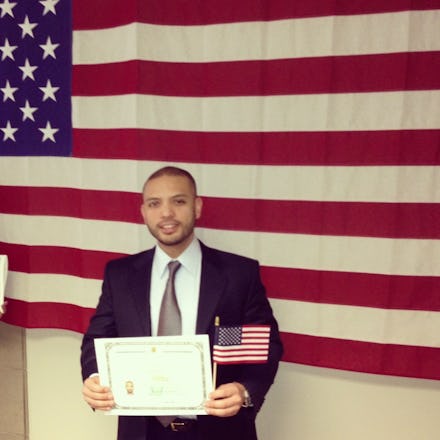Am I Hispanic Or Latino? Data Shows An American Identity Crisis Is Brewing

Three-quarters of Latinos living in the United States say their community needs a national leader, according to a new study by Pew Research Hispanic Trends Project. However, when asked to name the nation's "most important Hispanic leader" they failed to come up with an answer because; a) they don't know who he or she is, or b) they don't think he or she exists.
But why do Latinos even need a leader? One of the more interesting findings highlighted in that same study points out that nearly a quarter of American Latinos don't even consider themselves Latino — they consider themselves purely American. This suggests that popular opinion about this demographic is misstated, even completely misunderstood. There is no single, vast Latino demographic, as many policymakers and pundits may think; nor is this demographic jockeying for a single socio-economic-political goal.
The report is just the latest in a series of studies that try to explain the attitudes, opinions, values and identities of a growing American demographic to which I belong; a heterogeneous bloc of about 53 million people — 11 million of whom are believed to live and work in the country as "undocumented immigrants" — who account for more than half of America's population growth between 2000 and 2010.
Other findings include:
- 54% of U.S. Latinos say they use their family's national origin (Mexican, Colombian, Argentine, etc.) to identify themselves;
- 23% use "American" to identify themselves;
- 50% say they don't have a preference between the terms "Hispanic" and "Latino;"
- 49% say they consider themselves a "typical American;"
- 44% say they feel different from the "typical American."
If asked, I guess I'd say I'm part of the 23% who identify as American — and the 49% who thinks of himself as a "typical American."
I grew up in Venezuela, from Colombian parents, and became a naturalized American citizen in 2012. However, more than being able to recite the Constitution, what makes me feel and identify as an American is the fact that I share this country's exceptional egalitarian vision and the belief that there's opportunity out there regardless of your background and origin.
That's why I'm usually skeptical of studies like this, as they tend to reinforce stereotypes and fulfill predetermined political narratives — such as the one that suggests "illegal immigration" is the number one issue for Latinos, when it's not (it's not even an exclusively "Latino issue").
I personally think all this slicing and dicing of Americans into often politically polarized groups or demographics (women, African Americans, Latinos, LGBT, etc.) is not constructive when it comes to addressing the most pressing challenges we all face as one nation under God (or not, if you're an Atheist).